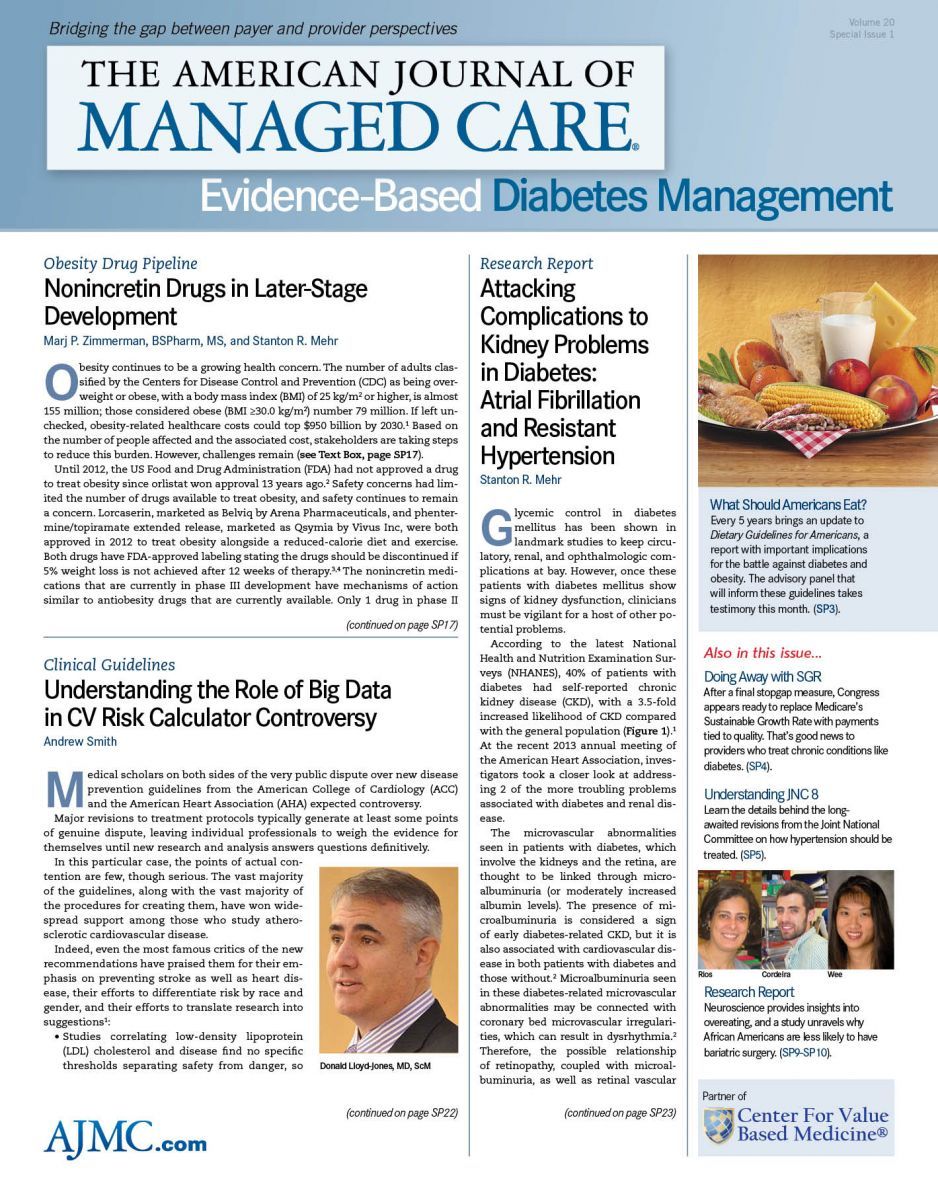- Center on Health Equity & Access
- Clinical
- Health Care Cost
- Health Care Delivery
- Insurance
- Policy
- Technology
- Value-Based Care
Understanding the Connections Between Race and Bariatric Surgery
Study Finds African Americans Less Likely to See Obesity as Harmful to Quality of Life
While weight loss surgery offers one of the best opportunities to improve health and reduce obesity-related illnesses, the nearly 100,000 Americans who undergo bariatric surgery each year represent only a small fraction of people who are medically eligible for the procedure.
Among those who have surgery, whites are twice as likely as African Americans to have weight loss surgery. On the surface, the data appear to signal racial disparity, but when researchers at Beth Israel Deaconess Medical Center dug deeper to learn why this variation exists, the answer was more complicated.
Beth Israel investigators interviewed 337 moderately to severely obese patients from 4 diverse primary care practices in the Greater Boston area. Each patient reported a body mass index of 35 or higher, the baseline requirement to be considered medically eligible for bariatric surgery. The results were published in the Journal of General Internal Medicine.1
“It’s been assumed that the racial barrier to weight loss surgery is economic, that people don’t have insurance, are underinsured or can’t afford the copay or the time off work and that’s why we don’t see certain groups seeking treatment,” says lead author Christina Wee, MD, MPH, associate section chief for research in the Division of General Medicine and Primary Care. “But, in fact, the patients we talked to rarely mentioned economic barriers, so that didn’t account for the 2-fold difference between (whites) and African Americans.”
Wee also looked at level of education and impact of comorbidities such as high blood pressure and type 2-diabetes mellitus (T2DM). Neither accounted for the differences across races. But when she factored in reported quality of life using an obesity-specific quality-of-life index that captures physical function, sexual function, work life, self-esteem, and social stigma, the differences between races disappeared.
“What we found is that a significant reason that more African Americans have not considered weight loss surgery is that obesity has not diminished their quality of life as much as it has diminished quality of life for Caucasians,” says Wee.
Additionally, Wee found that just as many African American patients as Caucasian patients said they would consider weight loss surgery if their doctor recommended it, but doctors were less likely to recommend surgery for African Americans than for whites. “This is also likely related to quality of life,” says Wee. She found that differences in doctor recommendations were
reduced after accounting for differences in patient reported quality of life. Wee says that if patients aren’t bringing up concerns on their own, doctors may not be talking with them about issues related to diminished sexual function or lower self-esteem.
“Quality of life is clearly a very important motivator to patients with obesity. And what this study shows is that those quality-of-life differences across race are so important that they may actually drive decision making in a way that creates racial differences in how people think about undergoing treatment,” says Wee. “It speaks to the importance of thinking about the whole patient, factoring in personal values and facilitating individualized decision making.”
Wee and colleagues from Boston Medical Center previously reported on the importance of “whole patient” considerations in doctor and patient discussions about type of weight loss surgery in a December 2013 article published in the Journal of the American College of Surgeons.2
Additionally, Wee says, it’s important for doctors to be knowledgeable about the risks associated with weight loss surgery and to talk with their patients about it. “Bariatric surgery is a serious procedure with real risks and complications, but the fact that risk was identified as the number 1 barrier to surgery may suggest that patients often have a preconceived notion of just how risky it is and we don’t know if those perceptions are accurate unless we talk about it.”
The study also found that women were several times more likely to consider undergoing bariatric surgery than men, and that doctors were less likely to recommend weight loss surgery to men than women. Wee expected to be accounted for this gender variation by factoring in quality-of-life measures, but it was not. Women did have higher weight loss goals than men and this in part accounted for some of the gender difference in having considered weight loss surgery.
The study was funded by a grant from the National Institutes of Health.References
1. Wee CC, Davis RB, Huskey KW, Jones DB, Hamel MS. Quality of life among obese patients seeking weight loss surgery: the importance of obesity-related social stigma and functional status. J Gen Intern Med. 2013(2):231-238.
2. Apovian CM, Huskey KW, Chiodi S, et al. Patient factors associated with undergoing laparoscopic adjustable gastric banding vs Roux-en-Y gastric bypass for weight loss. J Am Coll Surg. 2013;217(6):1118-1125.

Telehealth Intervention by Pharmacists Collaboratively Enhances Hypertension Management and Outcomes
January 7th 2026Patient interaction and enhanced support with clinical pharmacists significantly improved pass rates for a measure of controlling blood pressure compared with usual care.
Read More
HEDIS Glycemic Goal Achieved Using Control-IQ Technology
December 22nd 2025A greater proportion of patients with type 1 diabetes who used automated insulin delivery systems vs multiple daily injections achieved the Healthcare Effectiveness Data and Information Set (HEDIS) glycemic measure.
Read More
Linking Data to Determine Risk for 30-Day Readmissions in Dementia
December 22nd 2025This study found that certain characteristics in linked electronic health record data across episodes of care can help identify patients with Alzheimer disease and related dementias at high risk of 30-day readmissions.
Read More
Performance of 2-Stage Health-Related Social Needs Screening Using Area-Level Measures
December 19th 2025Limiting health-related social needs screening to lower-income areas would reduce screening burdens; however, this study found a 2-stage screening approach based on geography to be suboptimal.
Read More
